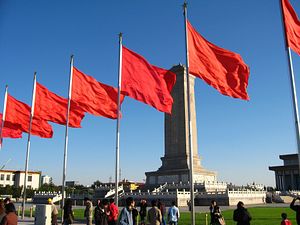Last week, U.S. President Donald J. Trump ordered a Section 301 investigation into China’s intellectual property (IP) practices. The report could take a year or more, and would not result in automatic action against China; rather, it would provide the president with a set of weapons to use if China is found in fault. Ana Swanson’s Washington Post article on the order provides a helpful typology of U.S. trade concerns regarding Chinese appropriation of US IP:
- China encourages/requires joint ventures between U.S. and Chinese firms that include technology transfer, in order to give U.S. firms access to the Chinese market, and the Chinese workforce.
- China’s new cybersecurity procedures force U.S. tech companies to turn over proprietary data and code to the Chinese government in order to operate within China.
- China’s failure to enforce extant IP law enables theft of trade secrets.
- Chinese investment in technology firms around the world gives it access to cutting edge technology.
All of these are real complaints with strong factual basis, not withstanding Chinese progress on some elements of IP protection. Action against China is broadly popular in the United States, even if the exact terms of dispute are murky to the greater part of the American public. Washington has thus far hesitated out of a hope of gaining Beijing’s cooperation on North Korea, and because some within the U.S. commercial community would prefer the risk of IP appropriation to the risk of losing out on the Chinese market.
Few within the U.S. policymaking community have heretofore had much interest in fighting a trade war against China. Former Presidential advisor Steve Bannon threw China policy into rhetorical disarray through a rambling, incoherent interview with Robert Kuttner of the American Prospect, the centerpiece of which was the following: “To me, the economic war with China is everything. And we have to be maniacally focused on that.” Bannon seemed particularly embittered by the idea that North Korea policy might get in the way of a trade war; as Charlotte Gao has noted, Beijing will not soon miss the embattled strategist. China has already taken the opportunity to express its displeasure with the investigation.
Given the time frame and change in personnel, it’s not at all clear what the Trump administration’s view of trade with China will look like in a year. Trump’s instincts seem closest to those of Bannon, but the foreign policy team that has slowly assembled looks much more mainstream in temperament and orientation. Moreover, there is little doubt that North Korea will remain a concern, and thus potentially relevant for China policy, although the administration may decide simply to give up on winning Beijing’s cooperation.
Finally, it’s noteworthy that the timing of the investigation could place the release of its findings perilously close to the 2018 midterms; Democrats are likely to push hard on the China question, given Trump’s previous promises on trade and protection. While Democratic Presidents have tended to lean heavily in the direction of free trade over the last twenty-five years, the Congressional contingent leans in the direction of protection. Trump, along with the Republican party, may find himself in a political box, trapped into aggressive action on Chinese trade practices.

































